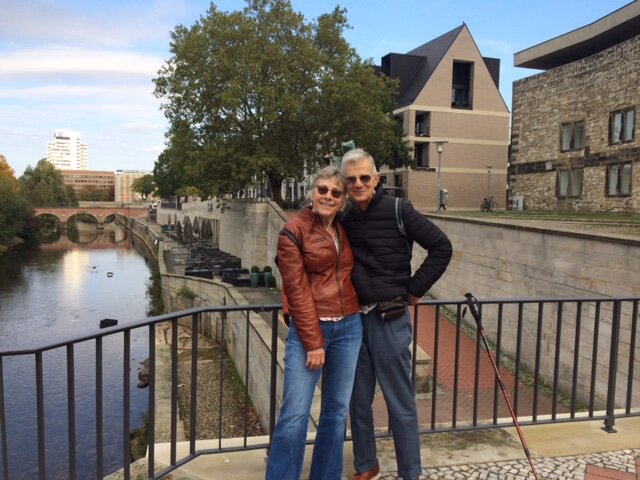King Ernst August of Hannover, popular meeting spot “unter dem Schwanz”. Stature in front of the train station.
At the Leine river.
The old city hall. (Rathaus)
Downtown Hannover with former college roommate.
Such timbered houses (Fachwerkhaeser) were moved out of the city shortly before Hannover was bombed.
The Maschsee (Masch lake), a man-made lake to catch the overflow when the Leine flooded. The lake bottom is covered with clay, limestone, and an 8 cm layer of gravel.
Digging of the Maschsee (1934-1936) , primarily by the unemployed who had to bring their own shovels. Since the goal was to employ as many as possible, no machines were allowed. The pay was minimum. One thousand six hundred worked on the project.
This plaque commemorates the digging of the Maschsee. The swastika has been removed.
“The Göttingen Seven were a group of seven liberal professors from Göttingen. In 1837, they protested against the abolition or alteration of the constitution of the Kingdom of Hanover by its new ruler, King Ernest Augustus, and refused to swear an oath to the king. The company of seven was led by historian Friedrich Christoph Dahlmann, who himself was one of the key advocates of the unadulterated constitution.” Wikipedia








